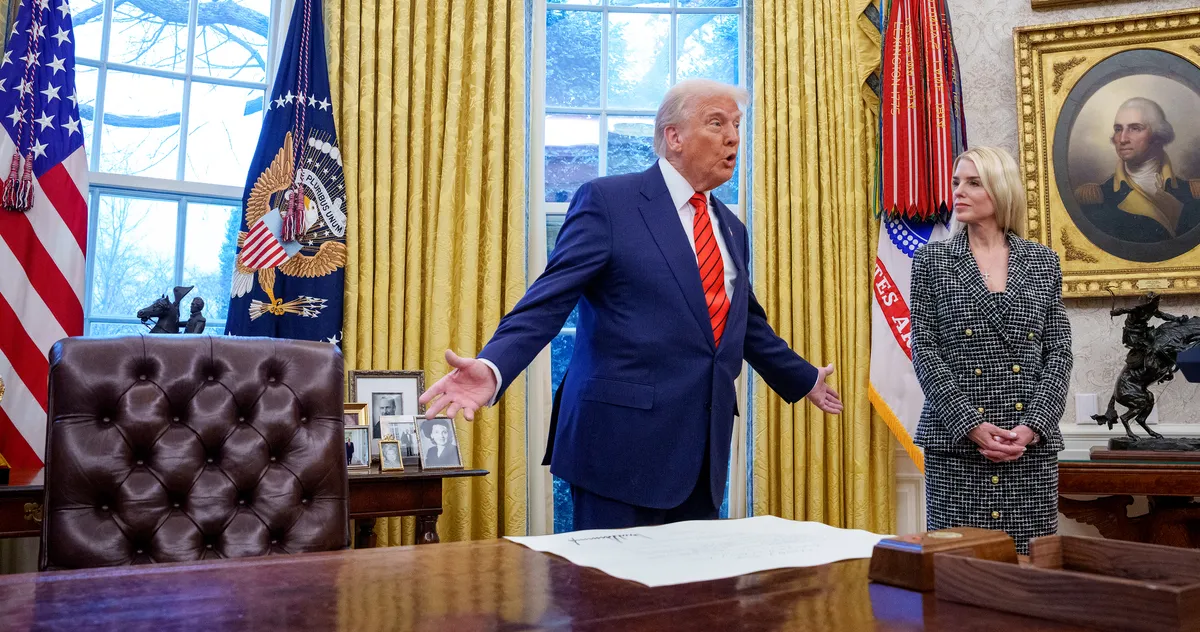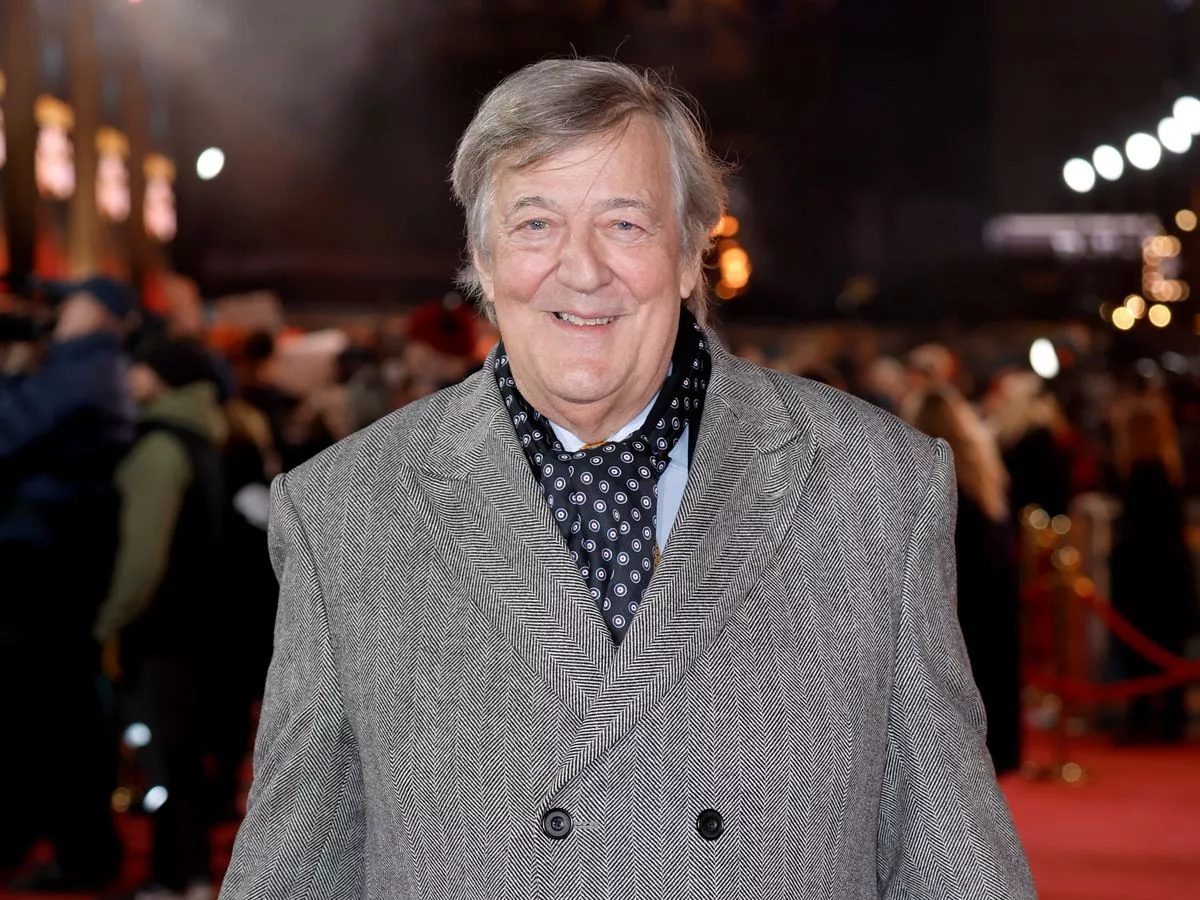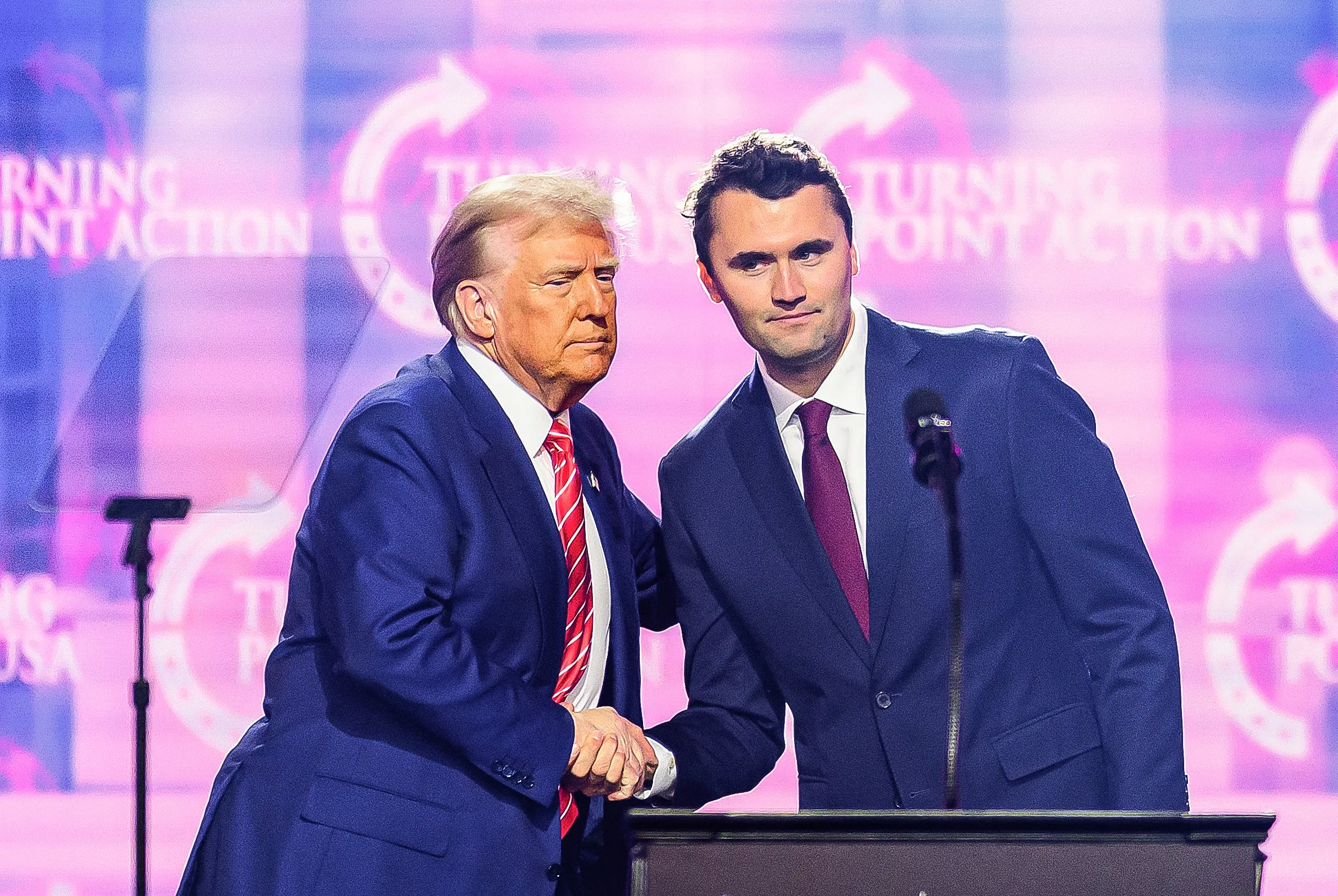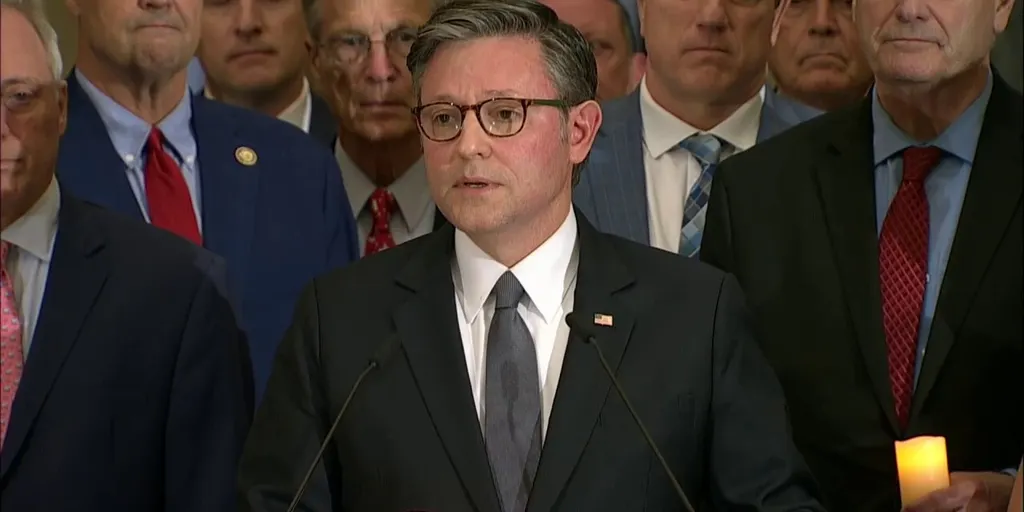
This article was adapted from Elie Honig’s book When You Come at the King: Inside DOJ’s Pursuit of the President, From Nixon to Trump, published on September 16 by Harper.
Jill Wine-Banks managed to get a rare Saturday off from her all-consuming job as a Watergate prosecutor to attend a family wedding in New York in late October 1973. When she returned to her hotel around midnight, a desk clerk handed her a handwritten message of a phone call from a colleague back home in Washington, D.C.: “The office has been seized by the FBI. Return immediately.”
Wine-Banks, then 30 years old and the only woman on the Watergate team, learned that special prosecutor Archibald Cox, a venerated former Harvard Law professor, had been fired by President Richard Nixon and that Attorney General Elliot Richardson and Deputy Attorney General William Ruckelshaus had chosen to resign in protest rather than carry out Nixon’s corrupt order. Wine-Banks told me she took the first flight back to D.C. on Sunday morning and went directly to the office, where she found yellow police tape marking off the working space. Wine-Banks started to remove tape from her desk when an FBI agent told her, “I wouldn’t do that, miss.” She ignored him.
James Quarles was a student of Cox’s at Harvard and later worked for him on the Watergate team starting in 1973, when Quarles was 26 years old; more than 40 years later, Quarles would serve as a top deputy to special counsel Robert Mueller. (Quarles quipped to me with a chuckle, “I was too young for Watergate and too old for Mueller.”) “We said, ‘Let’s make the president fire all of us if he wants to get rid of this,’” Quarles recounted. Wine-Banks said she and others found an unoccupied space in the office and sat together on the floor. Fifty-plus years later, she remembers Cox’s words: “As long as you can continue your work, do not give him [Nixon] what he wants.” She told me, “So we kept showing up, we kept working, and nobody threw us out.”
Less than two weeks later, Leon Jaworski became the new special prosecutor. Carl Bernstein, the now-legendary reporter covering Watergate for the Washington Post, recalled to me that Jaworski “increasingly became aware that Nixon and the people around him were trying to obstruct justice. Jaworski was a straight shooter … assiduous, determined, and especially wise. As a prosecutor, he was firm and could not be intimidated. He is certainly among the heroes of Watergate.”
Jaworski’s work culminated in July 1974 when the U.S. Supreme Court ruled by an 8-0 margin that Nixon had to turn over audiotapes made by the internal White House recording system, including a “smoking gun” tape in which Nixon and his chief of staff plotted to have the CIA shut down the FBI’s investigation. Less than three weeks later, Nixon resigned.
Nixon certainly tried to derail the Watergate criminal investigation, but he also recognized limits on his obstructive capacity. He fired the special prosecutor, but, constrained by politics, norms, and resistance from within the Justice Department, Nixon left the rest of the Watergate team in place and relented to the appointment of Jaworski, whose investigation ultimately forced his resignation.
No president — no person of any station — wants to be investigated by an outside prosecutor by any name (“special prosecutor” during the Watergate era, “independent counsel” in the late-20th century, and now “special counsel”). Since the Civil War, presidents (in the early days) and attorneys general (over the past half-century) have tapped outside prosecutors to handle the highest-stakes cases that might implicate the commander-in-chief or other political heavy hitters. This one is so sensitive, the thinking has gone, that it presents a potential conflict of interest for the Justice Department itself, necessitating the appointment of a trusted outsider. Robert Ray, who worked on Ken Starr’s investigation of Bill Clinton in the 1990s, told me, “Everyone’s in favor of the idea of an outside prosecutor, in theory — until one gets pointed at them.” As one cooperating prosecution witness testified to independent counsel Donald Smaltz during the 1998 trial of Secretary of Agriculture Mike Espy, “God knows, if I had $30 million, I could find dirt on you, sir.”
Donald Trump plainly understood the stakes. When he learned in 2017 that the Justice Department had appointed Mueller as special counsel, he slumped back in his chair and responded, “Oh my God. This is terrible. This is the end of my presidency. I’m fucked.” Trump’s visceral response was, in one respect, an implicit admission of guilt. Why would anyone be so upset unless they had something to hide? But in a broader sense, Trump’s reaction was entirely rational, an accurate reflection of historical fact. Even those presidents and other subjects who have avoided indictment by outside prosecutors have nonetheless sustained substantial personal and political damage.
But Trump in his second term is different in kind from any prior president, including his own first-term self. In retrospect, it’s a miracle the Mueller appointment happened at all and then endured for two years until the case’s natural end. Although Trump constantly attacked and undermined the investigation, he never quite took the drastic step of ending the probe altogether.
It’s clear now that Trump has learned from his own experience and that any effort in the second term to appoint another Mueller-style special counsel will be smothered at inception with retribution sure to follow. And it’s just as plain that Attorney General Pam Bondi — unlike Justice Department leadership during Trump’s first term and throughout history — will immediately snuff out any probe aimed at the president or the administration and will punish anybody who even broaches the possibility.
The early stages of Trump’s second term have marked an inauspicious moment for the Justice Department’s institutional independence and for accountability for the president and top government officials more broadly. Investigation and prosecution of such figures have never been easy. And recent legal developments — including the Supreme Court’s shockingly broad criminal-immunity decision in July 2024, Trump v. United States — pose sizable obstacles for any prosecutor seeking to hold any president or former president accountable.
At the same time, Trump has taken a maximalist view of his own executive power, and neither the courts nor Congress currently has the will or the ability to rein him in. But if anything, Trump’s open hostility toward any inward-looking investigation reinforces the need for a formal mechanism to address criminality by the president and his top brass, or for a new iteration that can withstand dogged political interference. Outside prosecutors have a long and varied history and have been anything but perfect. But they’ve been necessary throughout our history as a check on runaway presidential power. And now our need for a sturdy but measured special-counsel system is more acute than ever.
Plainly aware of the threat posed by outside prosecutors, presidents have long tried to undermine and obstruct criminal investigations aimed at the White House. Nixon and Trump are the most notorious offenders, and Trump has now taken self-protective obstructionism and retributive use of prosecutorial power to entirely new levels (or depths). But they’re hardly alone in the historical sweep.
In 1875, President Ulysses S. Grant acceded to political pressure and appointed General John Henderson as outside prosecutor — the nation’s first — to investigate a scheme involving kickbacks from Missouri whiskey distillers to administration officials. The story is old, but the beats are familiar: The prosecutor racked up convictions of mid-level officials and began to close in on Grant’s inner circle; Grant tried to block the criminal investigation by having a military tribunal take over (much as Nixon would do a century later with the CIA); Grant fired the prosecutor on a flimsy pretext; and the media lambasted the president, who griped publicly that he was being unfairly targeted. One newspaper wrote of the scandal, “Let no guilty man escape, unless he lives in the palace.”
In the early 1950s, the IRS was rocked by a series of scandals involving bribery and tax-kickback schemes. One official was suspected of gifting expensive, then-newfangled deep freezers to various influential recipients, including President Harry Truman’s wife, Bess. Under political pressure from Congress and the media, Truman named Newbold Morris, a respected New York Republican, as an independent prosecutor. But Morris promptly ran wild, haphazardly probing the personal finances of various administration officials. Two months after the appointment, the attorney general fired Morris, and Truman fired the AG. Truman told his staff of the high-profile termination, “I hate to do this to anyone. He was crying at the end.”
Bill Clinton generally refrained from publicly attacking independent counsel Starr, but he relied on verbal gymnastics to mislead federal investigators and the American public alike. (The Oxford English Dictionary now defines Clintonesque as a claim that is “true in most respects, but deliberately misleading in certain particulars.”) Starr’s runaway investigation of Clinton began in 1994 as a financial-fraud case focused on a series of Arkansas land deals known as Whitewater and wound up four years later focusing on the president’s sexual encounters with White House intern Monica Lewinsky.
In August 1998, the president testified to Starr and his team of prosecutors from the White House Map Room over live video feed to grand jurors seated in a courthouse about a mile away. Clinton’s personal attorney, David Kendall, who sat at the president’s elbow throughout the testimony, recounted to me, “As it went along, I felt fine. We had gone over 13 or so set pieces, and he was hitting them all. The clock was winding down. He was polished, and he was keeping his temper in check.” Meanwhile, on the prosecutor’s side of the table, Sol Wisenberg — one of Starr’s top deputies — stewed. “I was getting frustrated with the testimony and with some of our questioning,” he told me. “At one point, I didn’t realize it, but I was getting so angry I was hitting the table. And Ken leans over to me and says, ‘Stop doing that.’”
When he got his chance to question Clinton, Wisenberg confronted the president with a prior statement by one of his attorneys that “there is absolutely no sex of any kind in any manner, shape, or form with President Clinton.” Wisenberg posited to Clinton that the denial “was an utterly false statement. Is that correct?” As Wisenberg asked the question, Clinton turned his head to the side, cleared his throat, and appeared to struggle to suppress a smile. He paused for three seconds and delivered his infamous reply: “It depends on what the meaning of is is.” More than a quarter-century later, Wisenberg distinctly recalls the moment: “I was so happy because, in my opinion, he was kicking our ass to that point. But I knew right away when he said that, it was the only thing people would remember.”
The House impeached Clinton in December 1998 for perjury and obstruction; the Senate (which requires a two-thirds vote to convict) acquitted the president on both charges. (As he left office in 2001, Clinton’s Gallup Poll approval rating spiked to 66 percent — then, and still, the highest of any departing president since the poll began in 1952.)
If Nixon had the Saturday-Night Massacre, Trump had his Saturday-Afternoon Tantrum. At exactly 2:23 p.m. on Saturday, June 17, 2017, Trump placed a call from the presidential retreat at Camp David to White House counsel Don McGahn. McGahn later told Mueller’s investigators that Trump instructed him to dispatch Mueller. But Trump, showing some hesitancy to fire Mueller outright, came up with a pretext: Mueller had various conflicts of interests, Trump asserted, so he needed to recuse himself from the case. McGahn viewed those purported conflicts — one involved Mueller disputing his membership fees at a Trump-owned golf club — as “silly” and “not real” and had previously communicated that view to Trump. Nonetheless, Trump pressed on with his request.
McGahn thought back to the lessons of Watergate. He later told Mueller’s investigators that he “wanted to be more like Judge Robert Bork and not ‘Saturday-Night Massacre’ Bork” — a reference to Bork carrying out Nixon’s order to fire Cox. McGahn initially planned to resign, as Richardson and Ruckelshaus had done in 1973. But after consulting with confidants — one of whom recalled that McGahn said Trump had instructed him to “do crazy shit” — McGahn reconsidered. Ultimately, he handled the situation much as a parent with an unruly toddler would: He ignored the request and waited for the fit to peter out.
When Joe Biden took office in 2021, his administration inherited the John Durham probe, which had been launched by Trump to “investigate the investigators” shortly after Mueller’s work ended in 2019. Although Durham was plainly hostile to Democratic political interests, Biden and his Justice Department allowed him to spend two years finishing out his work entirely unobstructed. Durham concluded his investigation in 2023 with little to show for it: one guilty plea from an FBI lawyer that resulted in a probation sentence, and two trials that ended with not-guilty verdicts. One of the people charged by Durham and acquitted at trial, Igor Danchenko, told me, “They tried to turn me into Ivan Drago. They tried to play off Russian images from 25 years ago … the jury were never going to buy Durham’s b.s.”
Biden also endured the appointment of one special counsel (Robert Hur) to investigate the president himself for mishandling of classified documents and another (David Weiss) to investigate his son Hunter on gun and tax offenses. In an interview with me, Bob Bauer, the veteran defense lawyer who represented President Biden, criticized the statement in Hur’s final report that Biden was “a sympathetic, well-meaning, elderly man with a poor memory”: “Why is it not possible to do a report like this in far less than 300-plus pages? The derogatory commentary was entirely extraneous to the finding that there was no criminal violation.” And Abbe Lowell, who represented Hunter Biden, told me the appointment of Weiss as special counsel “all came about ass-backwards.”
President Biden surely didn’t welcome any of these special-counsel probes, but he allowed them to play out free of public or back-channel interference. Yet his public veneer belied his underlying anger at Attorney General Merrick Garland for allowing the cases to fester. According to Bob Woodward’s 2024 book War, Biden told an associate, “Should never have picked Garland. This is never going to fucking go away.” Ultimately, Biden’s pardon of his son — after the president and his supporters repeatedly claimed he would never do such a thing out of respect for the criminal-justice process — undermined his previously professed reverence for the independent prosecutorial system.
Still, despite all the pushback and complaining and scheming, the institution of the outsider prosecutor has endured in U.S. politics, and presidents across parties and centuries have allowed themselves to be investigated. Trump is fundamentally different, however; he has now chosen to bypass conventional methods developed by his predecessors to undermine and derail outside prosecutors. Instead, Trump has abandoned the niceties and decreed by his actions that he will be entirely investigation-proof.
Less than a year into Trump’s second term, he and Bondi have already made clear their intent to use the DOJ as a score-settling weapon of political retribution.
During his second campaign, Trump displayed his fierce instinct not only for self-protection but also for payback. At a March 2023 rally, for example, he told an approving crowd, “I am your warrior. I am your justice. And for those who have been wronged and betrayed: I am your retribution.” Trump threatened publicly to pursue those who were then prosecuting him — special counsel Jack Smith, Attorney General Garland, Manhattan district attorney Alvin Bragg, and Fulton County district attorney Fani Willis. Bondi, for her part, echoed Trump’s calls for retribution. In August 2023, in the immediate wake of Trump’s four criminal indictments (and before her nomination as AG), Bondi said on Fox News, “The Department of Justice, the prosecutors, will be prosecuted, the bad ones. The investigators will be investigated.”
Trump and Bondi wasted little time making good on their vow to pursue vengeance. Just days after he took office in January 2025, the president sent an unmistakable message to the Justice Department when his acting attorney general (Bondi had not yet been confirmed) fired about a dozen career prosecutors who had worked on Smith’s prosecution team (Smith had resigned weeks before). The termination letters offered no pretext: “You played a significant role in prosecuting President Trump.” Days later, new DOJ leadership fired dozens of FBI agents who had worked on the Trump case and other January 6 prosecutions. As the lone-wolf assassin Omar put it in The Wire (with a nod to Emerson and Machiavelli before him): “You come at the king, you best not miss.”
Bondi enthusiastically facilitated the president’s calls for vengeance. Immediately upon taking office as attorney general, she launched a so-called Weaponization Working Group to investigate and undermine Smith and other Trump prosecutors. By creating a working group outside the parameters of the DOJ’s special-counsel regulations, Bondi ensured the inquest could proceed without regard to the established restrictions, guideposts, and reporting requirements.
Indeed, the Justice Department has spent much of the summer of 2025 on a retributive binge. Bondi initiated a criminal grand-jury probe of Barack Obama and various top advisers for their intelligence assessments regarding Russian efforts to influence the 2016 presidential election. To date, the AG has offered neither a coherent theory of potential criminality nor an explanation of how conduct dating back nine-plus years might be chargeable given the five-year statute of limitations applicable to most federal crimes.
In August 2025, the Justice Department initiated a federal civil-rights probe of New York attorney general Letitia James, who had sued Trump for his habitual overvaluation of real-estate assets, which resulted in a verdict worth over $500 million including interest. (A New York appeals court upheld Trump’s civil liability but threw out the financial penalty later in August 2025.) Also that month, the Office of the Special Counsel — an executive-branch ethics watchdog separate from DOJ and the prosecutorial “special counsel” of the same nomenclature — launched a probe of Smith after Republican senator Tom Cotton claimed Smith had engaged in “unprecedented interference in the 2024 election.”
Bondi’s prosecutors also pursued potential criminal charges against James and Democratic senator Adam Schiff, a longtime Trump antagonist, for purported mortgage fraud relating to their personal acquisitions of real estate. In August 2025, Ed Martin — a political sycophant and 2020-election denier who had never worked as a prosecutor before he became head of the Weaponization Working Group — held a preposterously amateurish photo op on the street outside James’s private home. And in September, the Justice Department opened a criminal mortgage-fraud investigation of Lisa Cook, a Federal Reserve governor who incurred Trump’s wrath by declining to vote for lower interest rates. The criminal investigations of James, Schiff, and Cook followed referrals from Bill Pulte, a rabid loyalist who donated over $1 million to Trump’s political operations and now heads the Federal Housing Finance Agency.
At the same time, Bondi has made clear she will countenance no investigation that might trouble Trump or his administration. In March 2025, for example, the public learned that Defense Secretary Pete Hegseth, national security adviser Mike Waltz, and other high-ranking administration officials had discussed sensitive military attack plans over the nonsecure Signal app and had inadvertently added a journalist to their group chat. While comparable (or less serious) recent incidents of mishandling of classified information had resulted in extended criminal investigations of Hillary Clinton (the private-email-server investigation that ended with James Comey’s fateful, ill-advised 2016 Election Eve announcements), Trump (the Mar-a-Lago investigation that led to Smith’s appointment as special counsel and Trump’s indictment), and Biden (which resulted in Hur’s appointment as special counsel and an ensuing yearlong-plus investigation), Bondi quickly made clear she would permit no such inquiry into the new Trump administration. Just days after the scandal broke, the attorney general announced, based on no substantive DOJ investigation, that “first, it was sensitive information, not classified and inadvertently released. And what we should be talking about is it was a very successful mission.” Case closed before it was ever opened.
Already during his second term, Trump has obliterated countless guardrails, norms, and laws that once reined in runaway presidents and other powerful officials. He has fired inspectors general, disregarded ethics laws, profited handsomely from the presidency, and neutered intelligence, whistleblower, and law-enforcement structures.
The question for the next president and others who will follow is whether any of those protections will be restored. It’ll be tempting to let those checks on presidential power remain dead and buried. If Trump got away with discarding systems that could have imposed accountability, why should the next president bring them back, potentially at his or her own peril?
But meaningful, independent criminal investigation — imperfect as it has been over the years — is vital and cannot be left behind. As Archibald Cox testified to Congress just weeks after he was fired as the Watergate prosecutor in 1973, “The pressures, the tension of divided loyalty are too much for any man, and as honorable and conscientious as any individual might be, the public could never feel entirely easy about the vigor and thoroughness with which the investigation was pursued. Some outside person is absolutely essential.”
We’ve all heard the maxim that a nation can be measured by how it treats its weakest members. We also must observe an inverse corollary of sorts: A nation reveals much about itself by how it holds accountable its most powerful leaders when it suspects they’ve done wrong.



